Social enterprise for community self-reliance
Community self-reliance is the ability of a community to take care of itself and make its own decisions. Social enterprises help with community self-reliance by providing jobs and economic opportunities, essential goods and services, and social capital.
Social enterprises contribute to community self-resilience by diversifying the local economy, providing social safety nets and promoting sustainable development.
Social enterprises provide the following:
- Jobs and economic opportunities for women and marginalised groups. This helps to reduce poverty and inequality.
- Essential goods and services, such as childcare and food security. This helps people to get the things they need and to live better lives.
- Social capital, which is the trust and relationships between people in a community. This can help the community to cope in difficult times.
All of these lead to self-reliance in a community.
Case study

Under the GIRLSInspire initiative of the Commonwealth of Learning (COL), a community of young girls, young women and young mothers were trained in making soap and cleaning agents in Mzansi, Tanzania. They were also trained in financial literacy. As a result, the women got together and started their own business and shop. This created a ripple effect:
- more girls and young women took an interest in learning about and starting their own business, and
- the entire community benefitted as the hygiene products were readily available nearby, which helped the community to prevent possible diseases related to lack of cleanliness.
Some of the women were trained in making and preserving maize flour, peanut butter and sunflower oil, which form the staple diet of the local communities. The enterprise therefore proved to be beneficial for the local people, particularly when access to food was difficult.
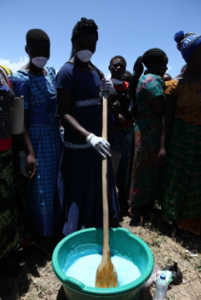
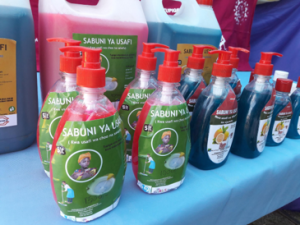

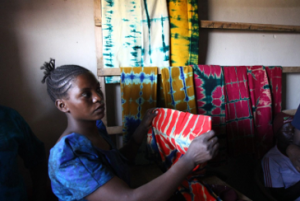
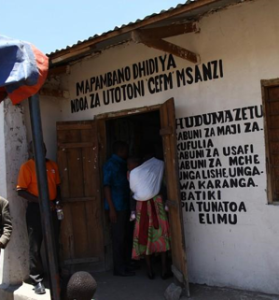
The goal for the women entrepreneurs was to develop eco-friendly soaps and other products as well as environmentally friendly packaging for all the products. This goal could help them reach the higher and more distant market segment of tourists. For example, they aimed to make value-added products such as environmentally friendly soap for the safari tourist market.
COL commissioned illustrated stories about the women entrepreneurs’ lives so that it could communicate the benefits of such livelihood-oriented learning and engage more women and girls.
The women’s enterprise has had a positive impact on their community in several ways:
- It has created jobs and opportunities for women and has inspired other women and girls to start their own businesses.
- It has made hygiene products and staple foods accessible and affordable.
- It has created opportunities for sustainable practices by investing in eco-friendly products and packaging and added value.
- It has invested in easily understandable promotion techniques to engage local communities.
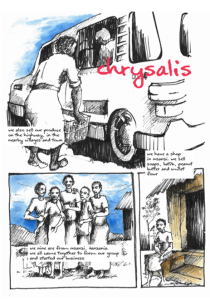
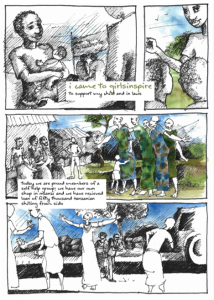
A comic booklet was prepared to promote the success stories of three young women in Mzansi who changed their lives and inspired others to do the same.
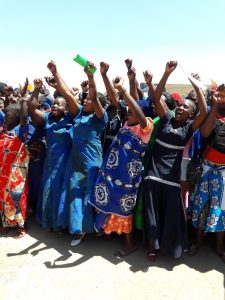
Activity

Using the case study above for guidance, study a social or community enterprise in your locale or community and come up with a communication strategy to promote and support it.

